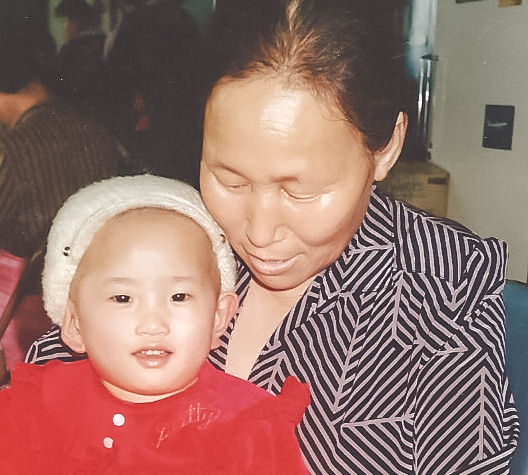(Adapted from the 2017 version of this post)

The lives of parents often center around their children—loving and supporting them; meeting their needs; helping to shape their identities; and instilling within them the values, morals, and life lessons we hope they will carry with them throughout their lives. Parenthood is not easy by any means, and it is so common as parents to feel as though we are just winging it at times. As we work to prepare our kids for living their lives in ways that feel right and successful for them, there are issues and topics that may need to be discussed with our children that we may not necessarily feel comfortable with or equipped to navigate. Sex and consent are issues that many parents, very understandably, do not feel comfortable even thinking about in the context of their kids—much less discussing with them or preparing them for.
Why is sex so difficult to talk about?
For parents, it can be difficult to think of children and teens as someday being ready for something as mature and intimate as sex. Sex can be a wonderful experience for some, but it also has the potential to be an extremely harmful experience for others—both physically and emotionally…the latter of which too many children and teens who have experienced foster care and adoption know all-too-well.
As parents, it is overwhelming to think of our kids as ever being exposed to, ready for, or interested in having sex, but the reality is that it will happen someday—whether we are ready for it or not.
Why it is important to talk about sex with your child who has been adopted?
When adoptees experience the trauma of familial separation, multiple placements, etc., it is not uncommon for the trauma and loss to impact and change their worldview. Whereas most infants and toddlers who maintain their connections with their birthmothers feel safe and loved and cherished, the losses an adoptee may experience lead them to believe that people who love them will always leave. When viewing life, experiences, and relationships through that lens—this can also lead to the development of a belief that love is conditional, always comes at a cost, and that something must be given in order to receive love.
For some adoptees—love is something they are in constant fear of losing. Some adoptees may fight against it and others may actively seek out any semblance of love and attention—sometimes without the existence of safe and healthy boundaries, and without the ability to distinguish between healthy and harmful connections.
Due to their lived experiences and other factors, some adoptees may have a distorted view of their own worth and value in this world. They may have never had the opportunity to learn and develop a belief that their bodies are worth protecting. If your child or teen doesn’t look like anyone else in their family or community, there is a possibility that they may experience racism and bullying within their school and community—which can subsequently impact their perception of and feelings about their physical appearance and their bodies.
Some additional factors that may contribute to the need for you to talk to your child or teen about sex are:
- They may develop a belief that they are invincible to or lack an understanding of the potential physical/emotional implications or consequential aftermaths of sex (“it won’t happen to me”).
- The losses experienced by adoptees are often profound and deeply felt. The impact of those losses can sometimes lead adoptees to pursue someone or something to fill the void created by the losses they have experienced in their lives. This may lead them to search for what they perceive to be love and connection anywhere they think they might find it, which can involve potentially risky and reckless behaviors.
- The desire to create a family or a life they feel they never had is a common theme among children, teens, and adults who have experienced foster care and/or adoption. Though many adoptions are open—the level of openness can vary significantly. Some youth who have lost their biological connections may become fixated on having a baby in hopes of creating a biological connection to someone; giving to their child what they feel they may not have had in their life; and having the opportunity to love and have someone in their life they believe will love them no matter what.
- Young people who have had very little in life to call their own—along with a distorted sense of self-worth—may develop a belief that their body is the only thing of value they have to give, rather than seeing it as something worth protecting.
Tips for talking with your child or teen about sex
It is important to talk to your kids about sex and to do so in age and developmentally-appropriate ways. Parents also need to be mindful of the potential impact of these conversations and the fact that some of these topics may be triggering for your child—depending on their complex trauma history. If you are unsure of how to these conversations may impact your child, be sure to consult with your child’s therapist prior to engaging in these conversations with them. It is also recommended that you communicate with your child’s therapist to let them know when these conversations happen so they can provide additional support as needed.
Included below are suggestions on how to approach and engage in these conversations with your child or teen.
- Start early. The “good touch, bad touch” talk should start happening when your child demonstrates a basic knowledge and understanding of the concept of right vs. wrong and has an awareness of their body to the extent that you can talk with them on a very basic level (cognitively and developmentally around 3 or 4 years-old) about which body parts are inappropriate for other people to see or touch, who is allowed to see those body parts, and in what context would it be appropriate for them to do so (i.e., a pediatrician during a well-child appointment—and only when a parent is in the room, etc.). It is important to use appropriate names for body parts when having these conversations with your child. A natural time for these discussions to happen would be during bath time or when you’re helping your child get ready in the morning or for bed.
- “No” means “no”, and “stop” means “stop”. This is a message that can be instilled in your child in various ways, starting from when they are very young. For example, if you are having a tickling match, the moment someone says “stop”, everyone should stop immediately, and then be done with the activity. Around the time that your child reaches puberty is typically a good time to shift the consent conversation to understanding the importance of respecting their partner, their partner’s body, and their partner’s right to say “no” or “stop” at any time and at any point during their relationship.
- Teaching respect and acceptance. Respect for themselves and for others is something that most parents work to instill in their children. This should include discussions around the right to say “no” to things like sex, peer pressure, etc., and the right to be involved in making decisions for themselves and their bodies. These discussions should also focus on the importance of embracing diversity and the things that make each person unique, loving the body/skin they’re in, and treating others with respect and kindness. Talk to your child or teen about issues like images they may see in the media and social media; lyrics they may hear in songs; the potential implications and consequences of sharing images of other people on social media or through text messages—especially around the issue of sexting (regardless of whether or not consent was given), etc. It is important to include race, culture, gender identity and expression, sexual orientation (including asexuality), religion, socioeconomic status, etc. in these conversations as well.
- Talking openly about love and relationships. It is important to talk to your children and teens about what love is and isn’t (be mindful of respecting and honoring your child’s birth family within these conversations), what it means to be in love with someone, what it means to love and respect your partner, the ups and downs of relationships, what an equal partnership might look like, etc. Children and teens can get embarrassed pretty quickly when talking about liking someone, dating, and relationships, so it is important to find a way to have these conversations with them in ways that are respectful, lighthearted when possible (not teasing), lowkey, and don’t shame or embarrass them for showing interest in someone or for choosing to be in a relationship. If you have a partner, you can model for your children what love and a healthy relationship can look like. Share in responsibilities as a family. Show affection towards each other (in appropriate ways). Show them the importance of making mistakes, having disagreements, holding each other accountable, and taking steps to repair harm that may have been done, and work together to heal. Apologize to each other and to your children when needed. Your children need to see that parents do get it wrong sometimes and need to apologize, too. Support and respect each others’ decisions, back each other up as parents and partners, and work through issues together whenever possible. Make sure your children are aware that there may be things that bother you or that you don’t particularly like about your partner, but the love and respect are still there. Your children need to know and see that perfection shouldn’t be the goal of their relationships—that imperfections within individuals and relationships are normal, important, and should be embraced and respected whenever appropriate and possible to do so.
- Talking about sex. Many children and teens learn about sex long before their parents are even aware or are ready to have “the talk” with them—often learning about elements of sex from their peers, movies and television, social media, etc. Talking to your child or teen about sex doesn’t have to be a big production, nor does it have to be an uncomfortable or cringeworthy experience. The conversations can be lighthearted or more serious—whatever works best for your family, depending on what aspect of sex and sexuality you are discussing. It is important to not stigmatize sex or frame it as a shameful act or something your child needs to hide from you or be embarrassed about. Talk to your child about the importance of waiting until they and their partner are ready. Make sure your child understands the importance of protecting themselves and their partner when they have sex, and what that can mean (protection from STDs, contraception, consent, etc.). Regardless of your child’s sex or gender identity—talk to them about pregnancy, what their options could be should they or their partner become pregnant, the importance of accountability and being responsible for the choices they make, etc. The more you talk about elements of sex, sexuality, sexual safety, safe and healthy relationships, etc. with your child, the conversations will become easier and feel more natural for everyone involved. Approach these conversations in ways that work best for your child and your family as a whole. It is important to not avoid having these conversations with your child, as they will hear about sex from someone—and it’s better they learn about it from you. Focus on the physical and emotional safety of your child and their future partners and try to avoid fear-based, judgmental, or shaming language or tactics when talking about sex with your child or teen.
Whether we, as parents, like it or not, the decision of whether or not to have sex and when our children feel ready to do so will ultimately be up to them and their future partners. The best thing parents can do for their children and for their future partners is to prepare them so that they are able to make safe, responsible, respectful, mature, loving, and informed decisions when they choose to take that step in life.


